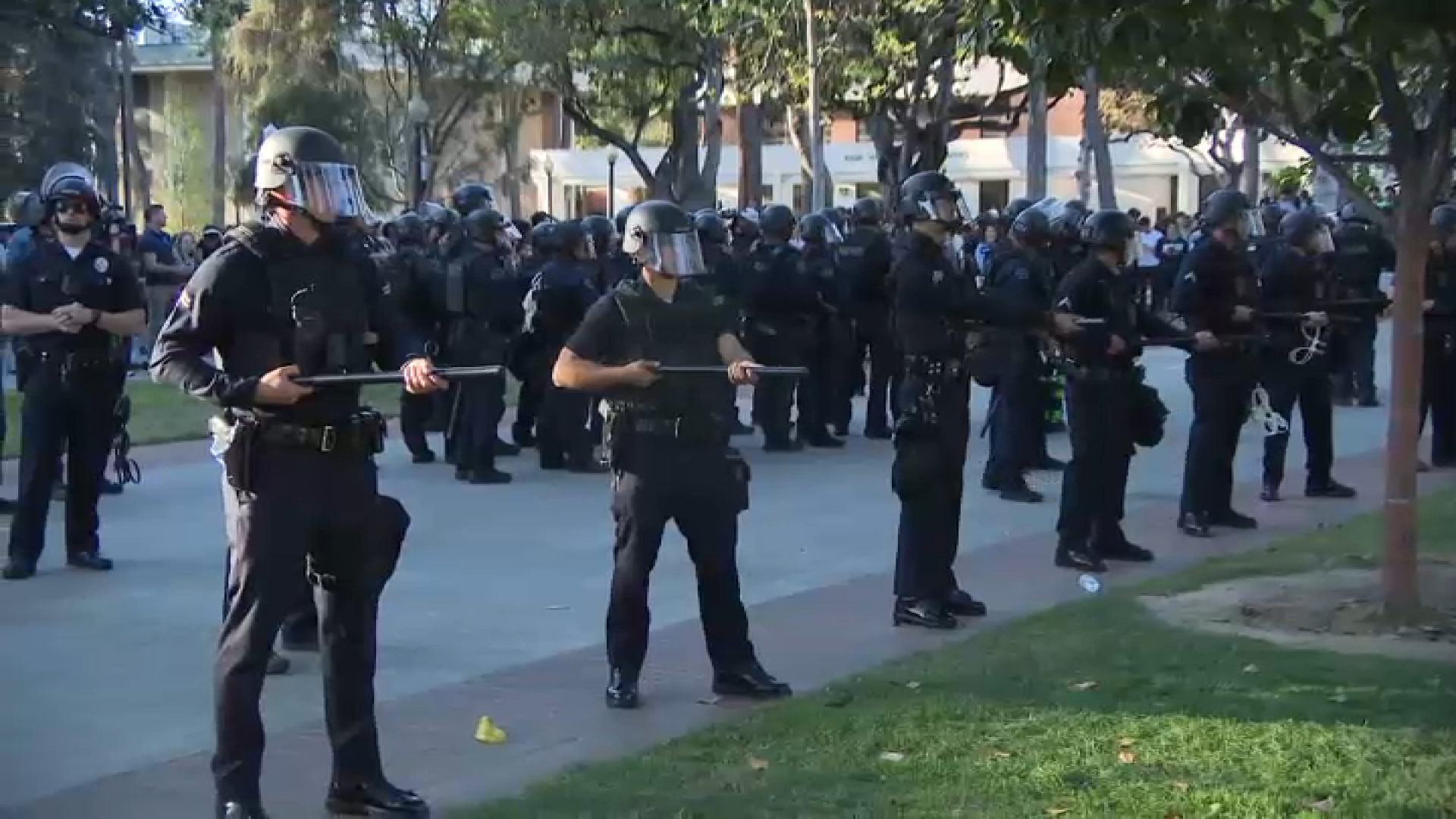A 21-year-old man was convicted Thursday of first-degree murder for the beating of a USC graduate student from China who was attacked during an attempted robbery near the campus after walking another student home from a late-night study session.
The Los Angeles Superior Court panel deliberated about two hours before returning its verdict in the case of Andrew Garcia, who is the second person to be convicted in the July 24, 2014, death of Xinran Ji, a 24-year-old electrical engineering student.
Garcia is facing life in prison without the possibility of parole, with sentencing tentatively set for July 11.
Jurors found true a special circumstance allegation of murder during an attempted robbery, along with an allegation that he personally used a baseball bat during the attack.
Garcia's co-defendant, Alejandra Guerrero, 19, was convicted last October of first-degree murder for her role in the killing, with jurors finding true the special circumstance allegation of murder during the commission of an attempted robbery, along with an allegation that she personally used a wrench during the attack on Ji.
Guerrero -- who is awaiting sentencing and also faces up to life in prison without parole -- was also found guilty of one count each of robbery, attempted robbery and assault with a deadly weapon for attacking a man and woman at Dockweiler State Beach about two hours after targeting Ji.
Garcia was also convicted of the same three charges stemming from the Dockweiler attack.
News
Top news of the day
Two other young men -- Jonathan Del Carmen, 22, and Alberto Ochoa, 20 -- are still awaiting trial in Ji's killing.
"In those last hours of his life, he showed himself to be a gentleman," Deputy District Attorney John McKinney told jurors, noting that Ji walked a fellow student home before the attack. "What he didn't know is that Mr. Garcia and his friends were driving around in that area looking for somebody to victimize. ... He ran into big trouble."
"They ambushed him. They caught him off-guard," the prosecutor said during his closing argument Wednesday, saying the victim was "mercilessly" beaten with a baseball bat.
Garcia and Guerrero caught up to the victim after he fled from the scene of the initial confrontation, and continued the attack, the prosecutor said.
Garcia and Guerrero ran away after Del Carmen drove off and the two eventually got back into the vehicle with the others, while the victim was able to stagger away and make his way back to his fourth-floor apartment, McKinney told jurors.
"He's dying. The fatal blows have already been inflicted. He doesn't know he's dying ....," the prosecutor said of surveillance footage showing the victim returning to the apartment building where he was found lifeless by one of his roommates later that morning.
Garcia and three of his friends were subsequently involved in the attack at Dockweiler Beach, in which the female victim was robbed and the male victim was struck with a baseball bat, McKinney said.
DNA testing determined that an aluminum baseball bat with blood on it that was found later that day near Dockweiler Beach contained Ji's blood, the prosecutor said.
When he was subsequently questioned by police about the attack on Ji, Garcia initially denied being in the area and then minimized his involvement in the crime and claimed Ochoa was the one wielding the bat during the attack on Ji, McKinney said.
"The evidence suggests he (Garcia) inflicted most of the severe ones (blows)," the prosecutor said.
In a surreptitiously recorded phone call between Ochoa and his mother after his arrest, Ochoa pinned the majority of the blame on Garcia in connection with the attack on Ji, McKinney noted.
In his closing argument, Garcia's attorney, David Kwak, urged jurors to acquit his client of the charges.
The defense lawyer told the panel, "What happened to Xinran is inexcusable ... We (the prosecutor and I) both agree that Xinran Ji was victimized and that his injuries led to his death."
But he said the prosecutor had made "some fanciful arguments."
"No one ever bothered to take any property from Xinran Ji," the defense lawyer told the seven-man, five-woman jury in his closing argument, telling jurors that there was a "lack of specific intent to commit a robbery."
He noted that Ji made it back to his apartment with his possessions, including a cellular phone and his wallet, showing jurors a photo of the wallet with cash inside.
He said his client -- who was 18 at the time -- told authorities he was "high" and had "smoked a lot of weed" and that he was "simply trying to take the blame" and "protecting his friends."
Kwak said there was no independent evidence about who remained in the vehicle during the attack on Ji, telling jurors that Garcia and Del Carmen looked similar.
The prosecutor countered that "Del Carmen looks nothing like Garcia," and said Garcia admitted to police that he was "out there trying to do a robbery."
Prosecutors are not seeking the death penalty against Garcia or Del Carmen. Guerrero and Ochoa could not face the death penalty because they were both under 18 at the time of the crime.
Ji's killing occurred two years after two other USC graduate students from China were shot to death during an April 2012 robbery as they sat in a car that was double-parked on a street near the USC campus.
Two men -- Javier Bolden and Bryan Barnes -- were convicted and sentenced to life in prison without the possibility of parole for the killings of Ying Wu and Ming Qu, who were both 23.



